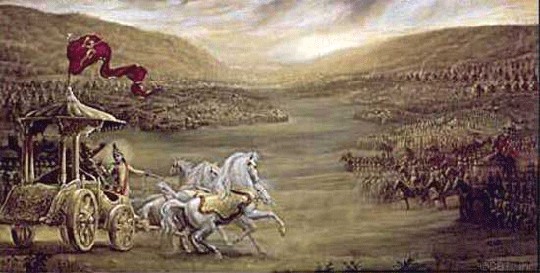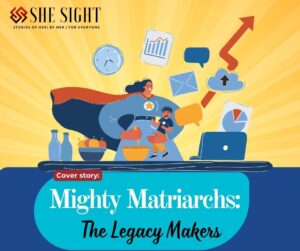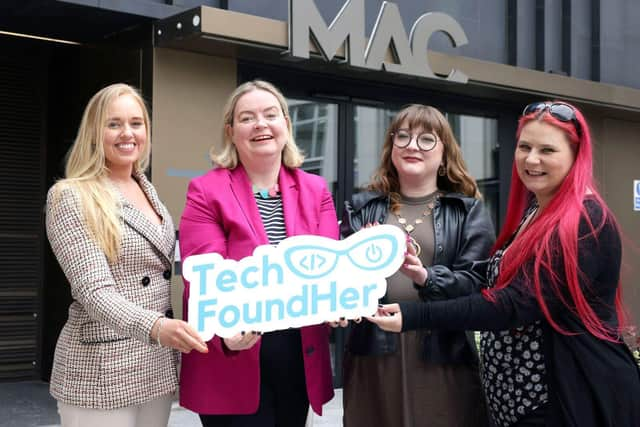A catalyst for Change: Dr. Mamatha Raghuveer Achanta’s Inspiring Journey
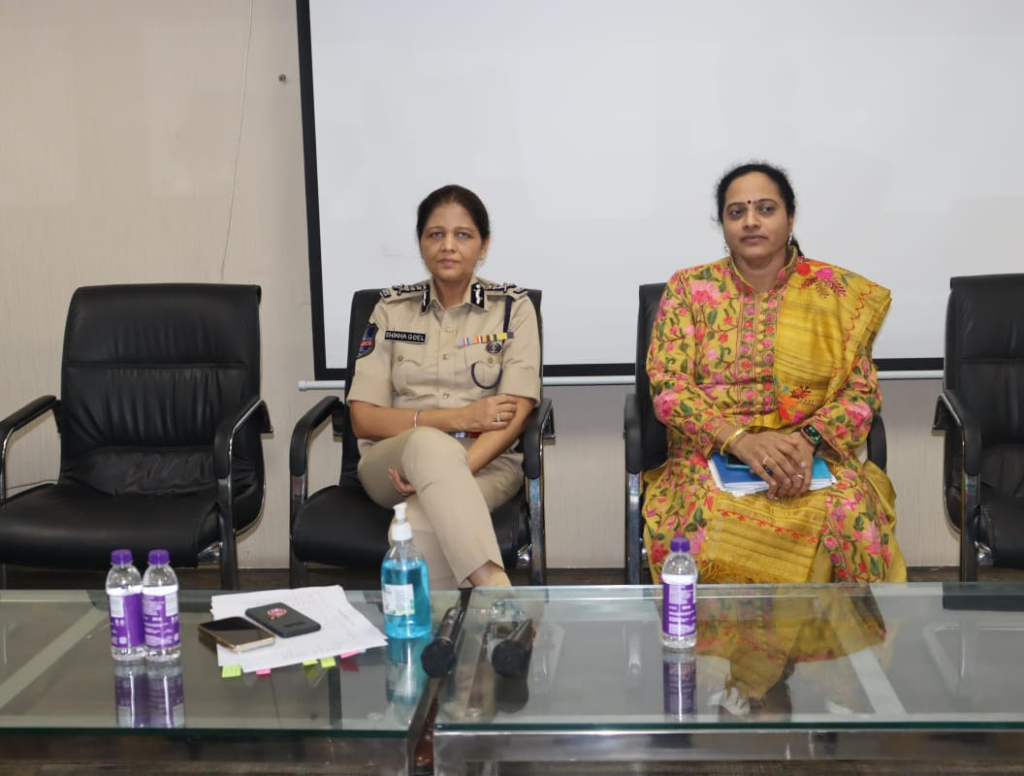
Dr. Mamatha Raghuveer Achanta is the founder of Tharuni (www.tharuni.org), an organization that works for the empowerment of women and adolescent girls. Since its formation in 2000, Tharuni has contributed immensely to the protection of girl child rights by organizing several campaigns against child marriage, Child Labour, Child trafficking, Infanticide & Foeticide. Tharuni stopped hundreds of Child marriages and helped the girls to continue their education. Tharuni forms Balika Sanghas (Girl Child clubs) in rural villages for girls in the age group of 10 to 18 years and could mentor 20,000 rural girls in the past two decades.
Dr. Mamatha is a Pro-bono advocate and filed 127 public interest litigations and cases against child marriages and for the Protection of children and women’s rights.
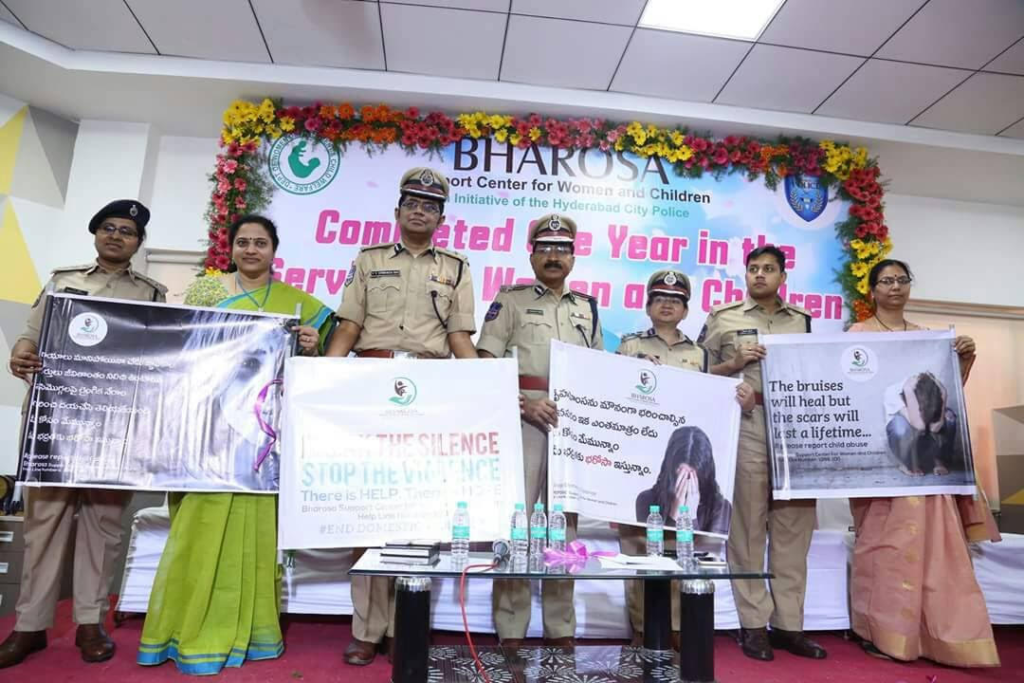
In 2015 Dr. Mamatha launched the Network of International Legal Activists (NILA) to provide legal guidance to needy Indian women across the globe. NILA runs an NRI women’s safety cell along with Telangana Police to support the victims of domestic violence – mostly Indian women who married Non-resident Indians abroad. Dr. Mamatha is also the technical director of Telangana State Police for the Bharosa Support Centre, a one-stop crisis center for rape victims, under which integrated assistance is provided through police, medical, legal, and prosecution services along with psycho-therapeutic counseling and relief and rehabilitation.
Dr. Mamatha recently launched a Pride Place – Trans People Protection Cell in Women Safety Wing, Telangana Police with the objective to support and protect LGBTQIA+community and sensitize police personnel and other stakeholders about trans people’s rights. The cell will investigate the cases of harassment being faced by trans people and will support the police in creating a safe passage for them in public spaces to travel freely.
Dr. Mamatha Raghuveer received many awards and accolades. She also participated at the invitation of the American Government in the International Visitor Leadership Program on Trafficking in Persons in 2009.
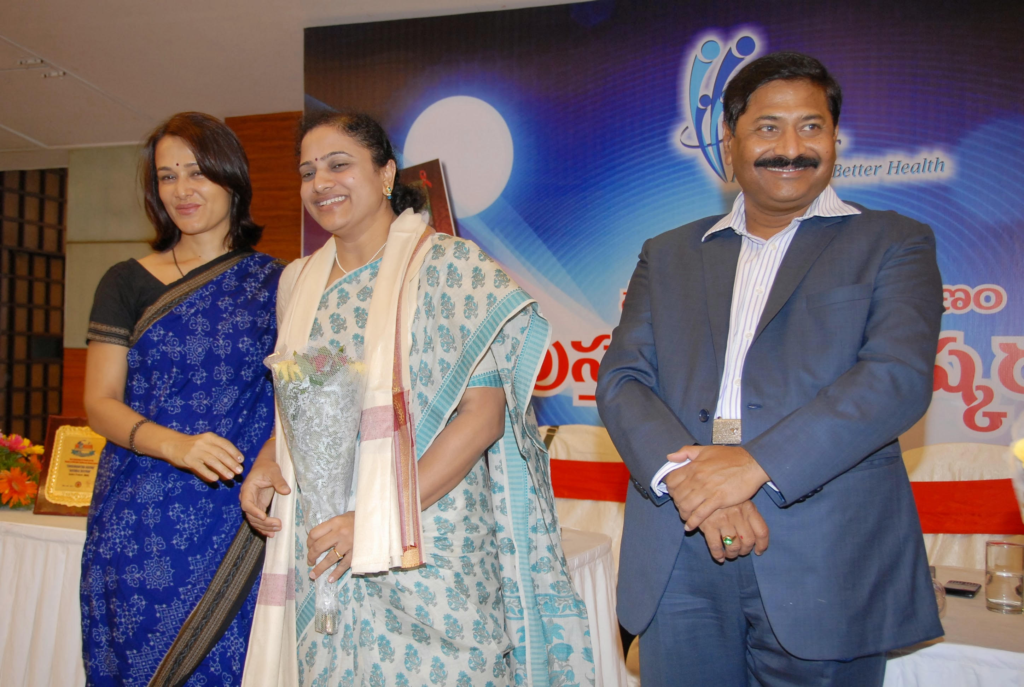
Dr. Mamatha worked as Chairperson of, the Child Welfare Committee, Warangal, and introduced many innovative reforms. She received the Best Child Welfare Committee in South India Award from the Jamshed Ji Tata Trust. She also worked as a Member, of the State Commission for Protection of Child Rights, Telangana, and could solve more than 100 child-related cases.
Dr. Mamatha has many academic accomplishments. She has done her MSc & Ph.D. in Biological Sciences, and later did her Master’s in social work and Degree in Law. She has done various courses in public relations, Human Resource Management, and Community development. She was one of the four women selected globally for a Fellowship in the prestigious Coady International Institute of Social Sciences, Nova Scotia, Canada. Added to this she has a Brown Belt in Martial arts, Certificate in Veena (Carnatic Music), and a Senior Diploma in the language Russian. She is now pursuing her MA in Psychology.
https://en.m.wikipedia.org/wiki/Mamatha_Raghuveer_Achanta
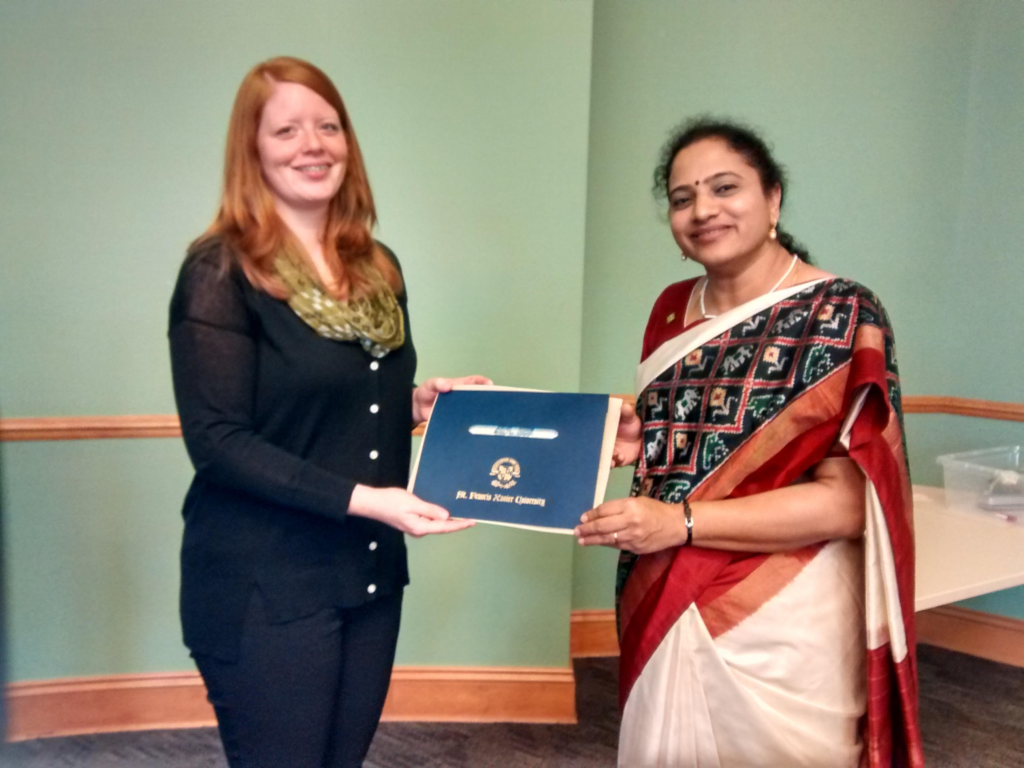
Let’s have a tete-e-tete with Dr. Mamatha…
What drives you? Why do you do what you do?
My passion to fight for justice drives me. I can’t stand any injustice happening to women and children. I get a lot of satisfaction from helping others.
It all began during my school days when I held the position of class leader and eventually became a school leader. I consistently offered assistance to anyone in need, which provided me with a sense of fulfillment. This desire to help others fueled my ambition to pursue a profession dedicated to serving people. Although I initially considered becoming a nurse, doctor, or civil servant, I ultimately followed a different path and became a social activist.
What are the biggest challenges that you face in your work?
My work is related to girl children and even today a girl child is looked at as a burden. I have been fighting against social evils like child marriages, child labor, Human Trafficking, and Child sexual abuse, which require sustained efforts and perseverance. It is very difficult to convince people and Governments on these issues. I had to face so many life threats while rescuing the girls from child marriage or child labor. Getting both financial and human resources is very difficult when we are working for the empowerment of girls and women. Very few grants are given for girl child empowerment.
It requires a lot of perseverance and commitment to bring changes in policy or in laws related to women. I filed 127 Public Interest Litigations in various courts when there was no response to my representations to the Government. Long battles resulted in bringing out a new law on Child Marriages in the country and we were part of the Parliamentary committee where our suggestions were incorporated into the Prohibition of Child Marriages Act, of 2006. But for this, I had to fight for years and file a case even in the National Human Rights Commission.
What are the biggest opportunities you see as a woman?
Women never get opportunities in this patriarchal society, but they turn every challenge into an opportunity. Women are born multi-taskers. They have inbuilt resilience and can fight against any odds. They must prove themselves at each step and this made them to be strong and skillful. The only weakness among women is they underestimate themselves and always try to remain subservient.
Things are changing and now the sky is the limit for women who can sustain the competition from men and women. For this, they must equip themselves, maintain their health and enjoy being on the top without feeling guilty of anything.
What leadership traits and characteristics or indeed strengths and weaknesses do you feel are required or hinder you in your pursuit of excellence in your field of expertise?
Being a woman in this field of social development, it is very difficult to sustain because people here in this field don’t practice what they preach. Hence, if you want to be a leader here you must have lots of patience and be an incorrigible optimist. Social Activism tries to bring change in society, and it takes a long time to see the desired results. One must learn to understand the challenges, strategize, and go on doing until you see the change happening. The most important thing is to have acceptance of all sorts of people and be able to serve them with a kind heart. Hence you are expected to be no less than a ‘God /Goddess’ who is kind, empathetic, always smiling, takes any amount of criticism/ opposition, and grants or fulfills the requirements of the people you are serving.
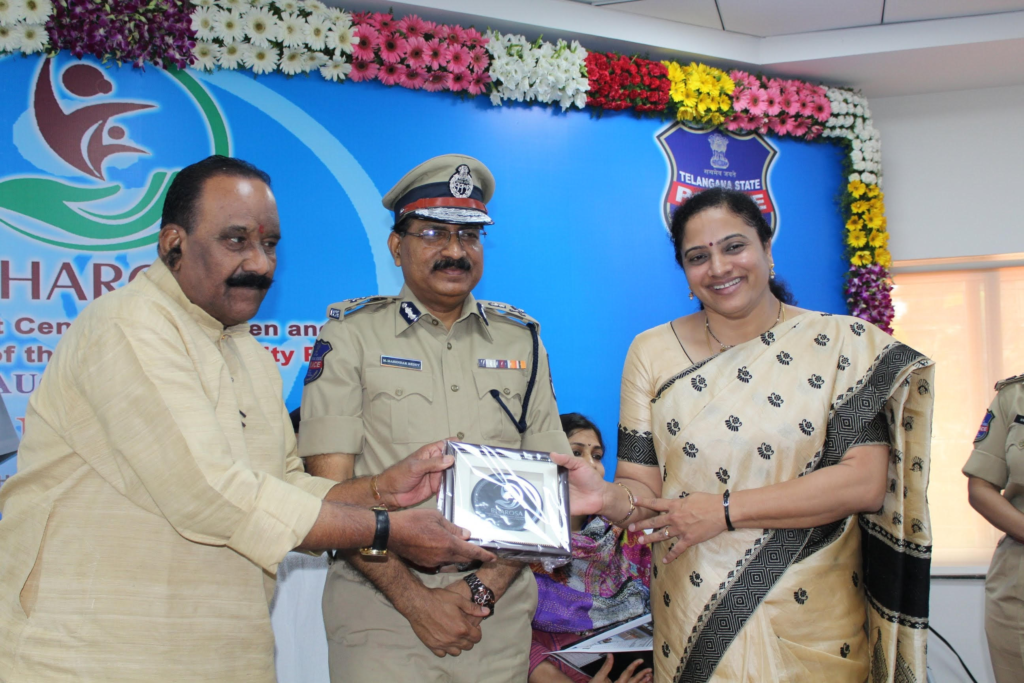
When did you step into this role?
I started working in the slums of Hyderabad in 1995 when I got an opportunity to work on a World Bank-aided project. For the first time, I saw poverty, discrimination, and violation of rights very closely and learned to balance communities and Government. With this strong base of five years of experience, I started my NGO – Tharuni (www.tharuni.org) in the year 2000. When I shifted to rural areas in Warangal District, I had to relearn so much because the needs and challenges were different. It has been over two decades now, and it has been a long and satisfying journey.
How would you describe your leadership style?
My way of working is democratic, which means we collaborate together to achieve our goals. I believe this is the key to my success. By being humble, listening to others, and making them feel valued, I have gained a good reputation and smoothly accomplished the tasks I set out to do. I have led successful projects involving government, communities, and beneficiaries, which have brought about the changes I wanted to see in society. For instance, the Bharosa initiative with Telangana Police and the HIV & AIDS campaign in schools with the Education & Health department are prime examples. Convincing the police to focus more on the victims has been a challenging task, but I have successfully achieved it for the past eight years. Collaborating with the government is crucial for scaling up the models I have created in the field. It requires intelligence and determination to continue working despite setbacks caused by personal egos and lack of awareness.
To fight against child marriages, I had to persistently submit over thirty requests to an officer in order to obtain a government order. However, I have developed my own working style that has led to the formulation and implementation of new policies and laws in the field, effectively supporting those in need.
How do you motivate yourself every day?
My motivation comes from the challenges I face in my work and from the smiles I see on the faces of the girls for whom I work. My family is my greatest strength, and they motivate me to continue this unpaid job.
How do you manage the multiple roles that you do in your daily life?
I was trained by my mother in multi-tasking during my childhood. She made me learn Carnatic music (playing instrument – Veena), Martial arts, to be a topper in academics and sports. I continued doing this throughout the five and half decades of my life and I have more than sixteen degrees in academics and other fields. I can’t sit idle and try looking for work. If you have the passion, zeal, and ability to choose the right kind of opportunities to work, then you will be successful.
What’s your philosophy in life?
“Help Ever Hurt Never” is my philosophy of life. I have read in one book that after taking so many forms of life we become human beings and the motto of humans should be helping others. So, I have decided to help people around me, particularly those who are discriminated against by others. That’s why I am working or worked previously, for girls, women, aged and trans people. Whatever initiatives I have started for them could be successfully sustained.
Your message to other women…
“Don’t forget that you have the capacity to do anything and everything in the world. Learn more skills and work smartly. Be united, never taunt other women – just encourage them and let them blossom along with you!” If we walk together, a path will emerge!
The awards and recognition that you received…
Many – you may catch all these on my social media (Twitter) handles: @AchantaMamatha
and @Tharuni_org and Wikipedia, too.
What else do you want to do to help the society?
I want to reach out to more and more girls and create an army of girl champions (Tharuni
Sahelis) in the entire globe, who can support any girl or a lady in distress. No girl or woman
should feel helpless.
Interviewed by Dr. Sailaja who hails from Hyderabad, India, and is a seasoned HR Leader, Guest Speaker, and Sustainable Practices enthusiast




